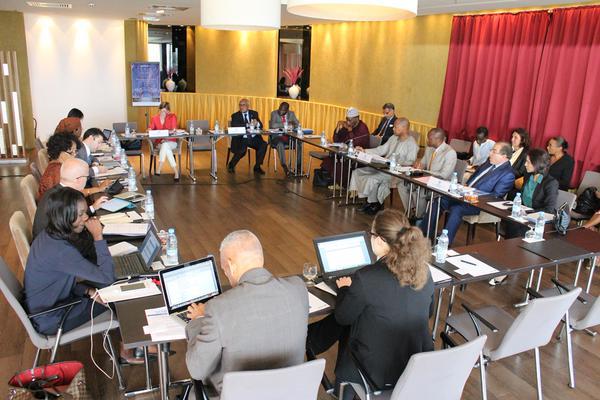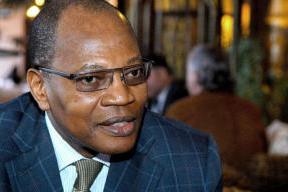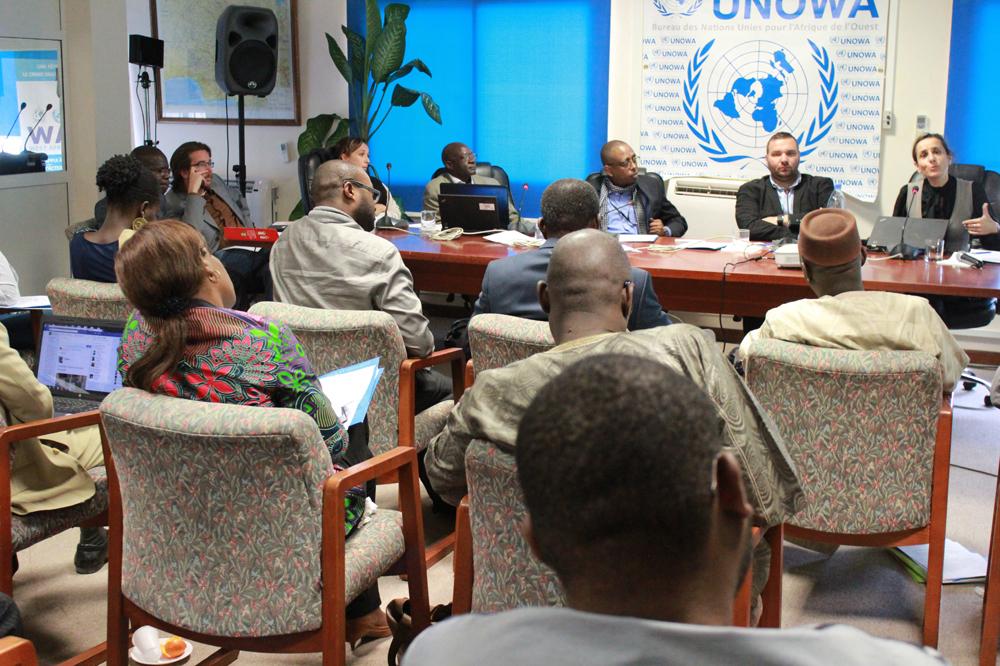16 March 2011 – Liberia has made important progress over the past eight years in emerging from conflict but will need continued international attention, especially given the upcoming general elections and the recent influx of refugees from Côte d'Ivoire, a senior United Nations official said today.Ellen Margrethe Løj, the Secretary-General's Special Representative and head of the UN Mission in Liberia (UNMIL), told the Security Council that the political and security environment in the West African nation has become more complex in recent months.
"Not only is the election calendar coming clearly into view, but the situation along Liberia's border with Côte d'Ivoire requires close monitoring for potential security fallouts," she told the 15-member body.
"Liberia is much stronger today than it was eight years ago when UNMIL arrived on the ground. Nevertheless, we should not take these eight years of unbroken peace for granted. I am confident that the Liberian Government has the political will and the commitment to address these challenges, though much more international engagement will be needed," she stated.
UNMIL has been on the ground since 2003 to help support a ceasefire agreement that ended a decade-long war that killed nearly 150,000 people, mostly civilians, and sent 850,000 others fleeing to neighbouring countries.
The mission has been providing assistance and logistical support for the 11 October polls, including the airlifting and transporting of voter registration materials.
Ms. Løj reported that voter registration concluded on 12 February with no major security incidents, adding that it was encouraging that some 1.8 million registration forms had been retrieved. This represents 89 per cent of the estimated total number of eligible voters, an almost 30 per cent increase over the 2005 elections.
She cautioned, however, that there are likely to be significant challenges in the coming months in preparing for the referendum to be held on 23 August on amendments to the election-related provisions of the Constitution, as well as the October elections, as these are one-day events and Liberia's rainy season will be at its peak when the referendum is held in August.
"I cannot overstate the importance of successful elections, and a peaceful post-election transition, to solidifying the progress Liberia has made thus far," she said, adding that ensuring success will not just be about overcoming logistical and technical challenges but also about ensuring an environment conducive to healthy political debate and competition.
The Special Representative also stressed the need for strong support from the international community as Liberia deals with the arrival of tens of thousands of refugees fleeing the post-election crisis and accompanying violence in neighbouring Côte d'Ivoire.
"The influx has stretched the resources of generous host communities who were already living under difficult conditions; and poor infrastructure and insufficient resources have presented huge challenges for the humanitarian response."
She added that the situation also poses security concerns since monitoring the porous 700-kilometre-long border, especially given the poor state of Liberia's infrastructure, is a "massive" challenge.
Liberia is one of five countries – along with Burundi, Central African Republic, Guinea-Bissau and Sierra Leone – currently on the agenda of the UN Peacebuilding Commission that was set up in 2005 to help countries emerging from conflict make an irreversible transition from war to sustainable peace.
Ms. Løj noted that Liberia's inclusion on the Commission's agenda is a major opportunity for the country to solidify progress already made in security and rule of law sectors, as well as to go further and in new directions to address national reconciliation.
Ambassador Zeid Raad Zeid Al Hussein of Jordan, Chair of the Commission's country-specific configuration for Liberia, stressed in his briefing the need to sort out the numerous land disputes in the country to consolidate national reconciliation.
His visits to the country had also underscored the fragility of the judiciary, he said, calling for measures to strengthen the functioning of the existing courts before judicial services were extended beyond the capital, Monrovia.
"It remains a great concern of mine that efforts by the Liberians to rebuild their court system will require a considerable amount of time, and so the system itself will likely remain weak and penetrable in the short term," he stated, adding that proposals for establishing special courts to deal with serious economic crimes with a possible specialized police force should be investigated in greater detail with the Government.
(UN News Service)
"Not only is the election calendar coming clearly into view, but the situation along Liberia's border with Côte d'Ivoire requires close monitoring for potential security fallouts," she told the 15-member body.
"Liberia is much stronger today than it was eight years ago when UNMIL arrived on the ground. Nevertheless, we should not take these eight years of unbroken peace for granted. I am confident that the Liberian Government has the political will and the commitment to address these challenges, though much more international engagement will be needed," she stated.
UNMIL has been on the ground since 2003 to help support a ceasefire agreement that ended a decade-long war that killed nearly 150,000 people, mostly civilians, and sent 850,000 others fleeing to neighbouring countries.
The mission has been providing assistance and logistical support for the 11 October polls, including the airlifting and transporting of voter registration materials.
Ms. Løj reported that voter registration concluded on 12 February with no major security incidents, adding that it was encouraging that some 1.8 million registration forms had been retrieved. This represents 89 per cent of the estimated total number of eligible voters, an almost 30 per cent increase over the 2005 elections.
She cautioned, however, that there are likely to be significant challenges in the coming months in preparing for the referendum to be held on 23 August on amendments to the election-related provisions of the Constitution, as well as the October elections, as these are one-day events and Liberia's rainy season will be at its peak when the referendum is held in August.
"I cannot overstate the importance of successful elections, and a peaceful post-election transition, to solidifying the progress Liberia has made thus far," she said, adding that ensuring success will not just be about overcoming logistical and technical challenges but also about ensuring an environment conducive to healthy political debate and competition.
The Special Representative also stressed the need for strong support from the international community as Liberia deals with the arrival of tens of thousands of refugees fleeing the post-election crisis and accompanying violence in neighbouring Côte d'Ivoire.
"The influx has stretched the resources of generous host communities who were already living under difficult conditions; and poor infrastructure and insufficient resources have presented huge challenges for the humanitarian response."
She added that the situation also poses security concerns since monitoring the porous 700-kilometre-long border, especially given the poor state of Liberia's infrastructure, is a "massive" challenge.
Liberia is one of five countries – along with Burundi, Central African Republic, Guinea-Bissau and Sierra Leone – currently on the agenda of the UN Peacebuilding Commission that was set up in 2005 to help countries emerging from conflict make an irreversible transition from war to sustainable peace.
Ms. Løj noted that Liberia's inclusion on the Commission's agenda is a major opportunity for the country to solidify progress already made in security and rule of law sectors, as well as to go further and in new directions to address national reconciliation.
Ambassador Zeid Raad Zeid Al Hussein of Jordan, Chair of the Commission's country-specific configuration for Liberia, stressed in his briefing the need to sort out the numerous land disputes in the country to consolidate national reconciliation.
His visits to the country had also underscored the fragility of the judiciary, he said, calling for measures to strengthen the functioning of the existing courts before judicial services were extended beyond the capital, Monrovia.
"It remains a great concern of mine that efforts by the Liberians to rebuild their court system will require a considerable amount of time, and so the system itself will likely remain weak and penetrable in the short term," he stated, adding that proposals for establishing special courts to deal with serious economic crimes with a possible specialized police force should be investigated in greater detail with the Government.
(UN News Service)




